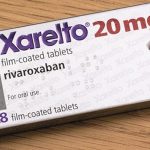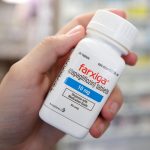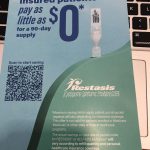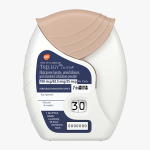Is There A Cheaper Alternative To Eliquis?
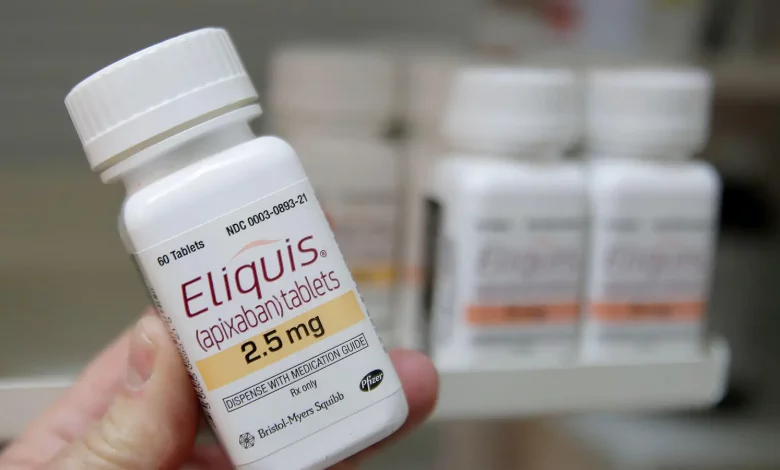
Blood clots can be a serious medical condition that requires prompt medical attention. Depending on the severity of the clot, treatment options can range from simple medications to surgical procedures. However, the cost of managing and preventing serious blood clots can be a significant financial burden on patients and their families.
For instance, medications used to treat blood clots, such as anticoagulants, can be expensive and require ongoing use. Additionally, patients may need regular blood tests to monitor their medication levels and ensure that the treatment is effective. Furthermore, some patients may require surgical intervention, which can be a costly procedure, especially for those without health insurance. Moreover, postoperative care and follow-up appointments can also add to the overall financial burden. In the long term, blood clotting can increase the risk of chronic conditions such as pulmonary hypertension, further adding to the overall cost of treatment and care.
In this article, we shall be taking an in-depth look at the cost implication of treatment with Eliquis and possible alternatives.
What is Eliquis?
Eliquis is a prescription medication that contains the active ingredient apixaban. It is an anticoagulant or blood thinner that is used to prevent blood clots from forming or getting larger, which can help reduce the risk of stroke, deep vein thrombosis (DVT), and pulmonary embolism (PE). Eliquis works by inhibiting a protein called factor Xa, which is involved in the blood clotting process. Eliquis is typically taken orally, usually twice daily, and is available in tablet form. It is important to take Eliquis exactly as prescribed by a healthcare provider, as taking too much or too little of the medication can increase the risk of bleeding or other complications.
How Effective Is Eliquis
Eliquis (apixaban) is a medication that belongs to a class of drugs known as anticoagulants or blood thinners. Eliquis is used to prevent blood clots, stroke, and systemic embolism in people with atrial fibrillation, deep vein thrombosis, and pulmonary embolism.
Clinical studies have shown that Eliquis is effective in reducing the risk of stroke and systemic embolism in patients with nonvalvular atrial fibrillation when compared to warfarin, another anticoagulant. Eliquis has also been shown to be effective in treating and preventing recurrent venous thromboembolism (VTE) when compared to a placebo.
Like all medications, Eliquis may have side effects, and the effectiveness may vary from person to person depending on factors such as dosage, medical history, and other medications being taken. It is important to discuss the risks and benefits of Eliquis with your healthcare provider to determine if it is the right medication for your condition.
How Much Does Eliquis Cost
The cost of Eliquis can vary depending on a number of factors, including the dosage prescribed, the location where it is being purchased, and whether the patient has insurance or not. Without insurance, Eliquis can cost around $500 to $600 for a 30-day supply of the medication.
However, most insurance plans cover Eliquis, and the out-of-pocket cost for patients with insurance can range from a few dollars to a few hundred dollars per month, depending on their specific insurance coverage. It is important for patients to check with their insurance provider to determine their specific coverage and out-of-pocket costs for Eliquis. Additionally, there may be cost-saving programs and patient assistance programs available to help reduce the cost of medication for eligible patients.
Is There A Cheaper Alternative To Eliquis
Yes, there are several cheaper alternatives to Eliquis (apixaban) available on the market. Eliquis is a brand-name medication that belongs to a class of drugs called anticoagulants, or blood thinners. It is primarily used to prevent blood clots and stroke in people with certain medical conditions, such as atrial fibrillation.
Some of the other anticoagulants that are similar to Eliquis and may be more affordable include:
- Dabigatran: Dabigatran is a blood thinner that works similarly to Eliquis. It is available in capsule form and may be a more affordable option.
- Rivaroxaban: Rivaroxaban is another anticoagulant that is similar to Eliquis. It is also available in tablet form and may be less expensive.
- Warfarin: Warfarin is a generic medication that has been used for many years to prevent blood clots. It is available in tablet form and is generally less expensive than Eliquis.
It’s important to note that the effectiveness and safety of these medications may vary, and you should always consult with your doctor before making any changes to your medication regimen. Additionally, your insurance coverage and pharmacy pricing may also play a role in the cost of these medications.
Are Eliquis Alternative Less Safe?
No, Eliquis alternatives are not necessarily less safe. Eliquis is a brand-name medication that belongs to a class of drugs called anticoagulants or blood thinners, and there are several other medications in this class that are used as alternatives to Eliquis. These medications work by reducing the risk of blood clots and stroke, and while their mechanisms of action may differ, they are generally considered to be equally effective and safe.
Some of the alternatives to Eliquis, such as warfarin, have been used for many years and have a long track record of safety and effectiveness. Other newer alternatives, such as rivaroxaban and dabigatran, have also been extensively studied and have been shown to be safe and effective in clinical trials.
That being said, no medication is complete without risk, and it is important to discuss the potential benefits and risks of any medication with your doctor before starting treatment. Your doctor can help determine which medication is the most appropriate for your individual needs, taking into account your medical history, other medications you may be taking, and any potential interactions or side effects.
What Are The Available Discount Programs For Eliquis?
There are several discount programs available for Eliquis (apixaban) that may help reduce the cost of the medication. These programs include:
1. The Eliquis copay card: This program is available to eligible patients with commercial insurance and can help reduce the out-of-pocket cost of Eliquis to as little as $10 per month. You can enroll in this program online or by calling 1-855-354-7847.
2. The Eliquis free trial offer: This program is available to new patients who have been prescribed Eliquis and can provide a free 30-day supply of the medication. You can enroll in this program by visiting the Eliquis website or by calling 1-855-354-7847.
3. Patient assistance programs: Bristol-Myers Squibb, the manufacturer of Eliquis, offers a patient assistance program for eligible patients who do not have insurance or who are experiencing financial hardship. This program provides free medication to eligible patients. You can learn more about this program by visiting the Bristol-Myers Squibb website or by calling 1-800-736-0003.
4. Pharmacy discount programs: Some pharmacies offer discount programs for Eliquis that can help reduce the cost of the medication. You can check with your local pharmacy to see if they offer any discounts or savings programs.
It’s important to note that eligibility requirements and availability of these discount programs may vary, so be sure to check with the program directly for more information. Additionally, these programs may not be combined with other insurance or discount plans, so be sure to discuss all available options with your doctor and pharmacist to determine the most cost-effective option for you.

